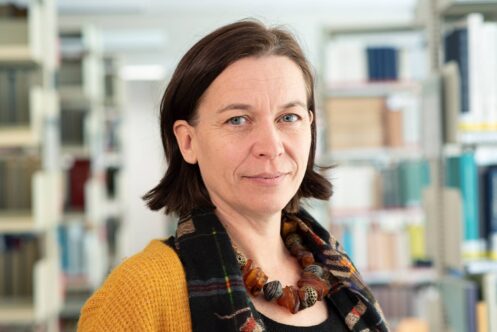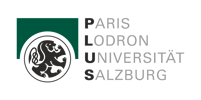PD Dr. Mag.phil. Birgit Breninger, MA
Deputy Head of Department of Communication Studies
Deputy Head of Division Transcultural Communication

Room: mezzanine 008, Rudolfskai 42, 5020 Salzburg
Office hours: by appointment
Phone: +43-662-8044-4172
Mail: Birgit.Breninger@plus.ac.at
PD. Dr. Birgit Breninger, M.A., Study in Salzburg and Oxford. Dr. Birgit Breninger is an Associate Professor in the Transcultural Division at the Department of Communication Studies. She studied in Salzburg and Oxford and is President of the InterCultural Center (ICC). She founded and directed the postgraduate intercultural education programs and took on the leadership of the Executive Programs for Intercultural Leadership in cooperation with the U.S. partner university in New York at Salzburg College in 2014. Her research interests include: intercultural competence and cultural intelligence, human-centred leadership, ethical creativity, culture & brain.- Culturalised communication and the brain
- Perception and intercultural gaze patterns
- new method development and method composition for intercultural competence measurement
- cultural and social neuroscience
- President (elect) of the InterCultural Center and Chairwoman of the International Board of ICC Experts
- Member of the International Academy for Intercultural Research (IAIR)
- Adviser and Reviewer on the German Board of Academic Advisors for GenderMed-Wiki
- Member of the Intercultural Campus: the Academic Association for Intercultural Studies, Network for Intercultural Research and Teaching (IKS)
- Member of the American Association for the Advancement of Science (AAAS)
- Member of the International Cognition and Culture Institute (ICCI)
- Member of the European Communication Research and Education Association (ECREA) Board Member of SOMOS
The latest research documentation can be found here.
Information on Master’s examinations with Dr. Mag.phil. Birgit Breninger, M.A.
Examination topics:
In principle, I examine in the subject area of the Department of Transcultural Communication on the following main topics from which you can choose: Intercultural Communication Intercultural Competence and Intercultural Training Intercultural Leadership and Management Culture, Mind and the Brain
Intercultural Communication
Intercultural Competence and Intercultural Training
Intercultural Leadership and Management
Culture, Mind and the Brain
Examination literature:
The examination literature on the respective focus topic has a total length of 150-200 pages. There is a literature list for each of the main topics; however, individual texts can be exchanged after consultation with the examiner if you would like to make your own suggestions.
Exam preparation:
Six to eight weeks before the planned examination date (examinations are usually held on Mondays during the lecture period), an appointment should be made with the exam candidate and the examiner to determine the date, topic and examination literature.
The examination candidate prepares for the examination by preparing an examination paper and abstracts of the examination literature. Both must be sent to the examiner by e-mail (in PDF) one week before the examination date. The examination paper contains the critically-reflective summaries of the articles/chapters provided (approx. 1-2 pages per article).
In addition, abstracts of the respective texts from the examination literature (approx. half a page per article) will be written.
It is recommended to prepare the exam as a kind of lecture, whereby one should be flexible within the topic in order to be able to respond specifically to questions.
Examination procedure:
The examination performance consists of the preliminary work (examination paper, abstracts) and the examination itself. The examination takes place as a kind of professional discussion at eye level. During the examination, care should be taken to present the individual topics in a structured manner and to distinguish important aspects from secondary aspects. For an above-average examination, a critical discussion is (also) required (e.g. criticism of previous research or establishing a reference to current developments); if necessary, a corresponding thesis can be formulated on the examination paper.

